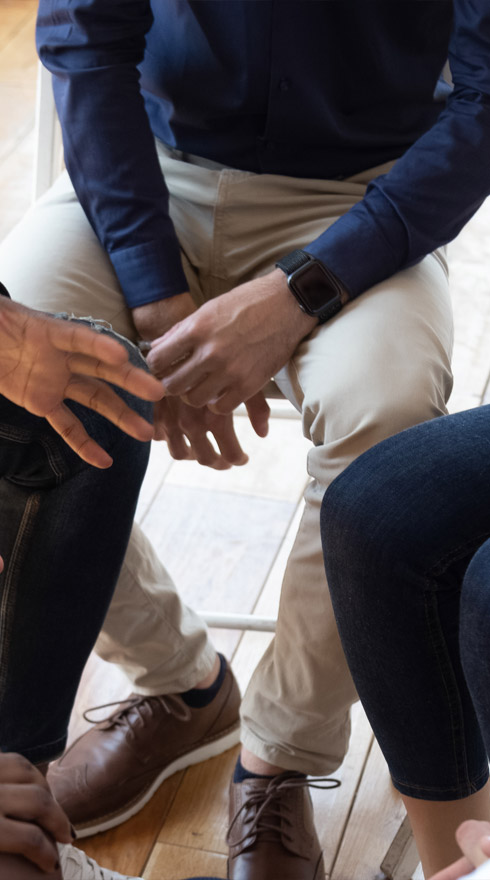Drug and alcohol addiction are hard to address when they affect you or someone you love. By using professional treatment services it is possible to treat drug addiction or alcohol addiction just like other illnesses and achieve long term sobriety.
Learn about how sober living can be achieved if you or a loved one can apply an integrated addiction treatment program.
What is Addiction Rehab (Rehabilitation)?
Addiction ‘rehab’ is the process of medical treatment and therapy to tackle your addiction to on drugs such as illegal drugs, prescription drugs and alcohol. Rehab treatments are best when they are personalized to your individual needs, and may include residential programs, outpatient programs, medically-supervised detoxes and relapse prevention programs.

Facts & Statistics about Addiction in Ontario
Prevalence of Substance Use Disorder, by Drug Type
(IN THOUSANDS)
- 2,7578.5%Any Substance
- 2,0886.4%Alcohol
- 1,0683.3%Ilicit Drugs
- 2060.6%Pain Medication
Drug- and Alcohol-Induced Deaths by Age Group, California, 2016
- Alcohol-Induced
- Drug-Induced
- 18 to 250.5
- 9.6
- 26 to 354.3
- 13.9
- 36 to 6424.2
- 22.9
- 65+23.7
- 9.4
Drug Use, by Selected Type and Age Group California, 2015 to 2016
- 12 to 17
- 18 to 25
- 26+
- Marijuana*13.2%
- 34.0%
- 13.5%
- Misuse of Pain Medications3.5%
- 8.0%
- 4.3%
- Cocaine0.8%
- 7.2%
- 1.8%
- Heroin0%
- 0.4%
- 0.2%
What are the treatment options available in Ontario?
An integrated solution is generally the best way to tackle and heal the underlying causes of drug addiction and alcoholism. Even though symptoms of addiction need to be tackled, life skills will also be encouraged in order to focus on the main causes of your addiction issues.

Private Residential Programs
If you are staying on the same property that you are receiving your rehab treatments in, you are part of a residential rehab program. Having Access to 24-hour support and addiction treatment is by far one of the major benefits. When you leave your home and move into a treatment facility, you can remove yourself from exposure to stressors that would have influenced your decision to abuse drugs or alcohol.
If you reside in a safe and supportive environment you can safeguard yourself from relapse and improve the chances of finishing your rehab program. If you have co-occurring disorders, dual diagnosis or a strong dependency on drugs or alcohol, an inpatient program is better suited to meet your rehab needs. A residential treatment program will assist you in getting sober, however maintaining sobriety will require constant effort as the first few months of recovery are usually hard for many people. When your inpatient program is complete you will have the skills to be more independent and your focus will be on your new journey and the things you want to achieve from life.
Do You Need Help?
Let us help you start your recovery journey today.

Sober Living Programs
A sober living program will help you with the skills you need, through support and guidance from addiction specialists. You can expect:
- A house manager to check in on you daily
- Develop boundaries for your behavior in recovery
- Support and new friendships from those who are going through the same process as you.
Outpatient Programs
Outpatient programs provide more flexibility as you can continue with work commitments and live at home, but you visit the rehab facility for addiction treatments.
Outpatient programs teach you:
- Education on substance use
- Therapy and psychological interventions like group and individual therapy – An outpatient program should last between three months to over a year, this depends on your requirements.
Detox Only Programs
The early stage of any treatment program is a detox, which eliminates any traces of substances from your system and addresses your physical dependency on it. During the stage of detox you will go through withdrawal symptoms as the system stabilizes to function without the substance it was physically reliant on.
Upon completion of the detox phase, you will continue forward in your recovery journey, as you come to terms with the main causes that contributed to your dependency, to help you cope and avoid it long-term. A lot of substances result in protracted cravings and withdrawal symptoms after you have been through a detox programme. Relapse is less of a concern when you are equipped with the coping skills required to navigate your life in recovery.
Paying for Private Treatment
If you have chosen to commit to private rehab, you will need to cover the costs or start a claim through your healthcare policy. Most insurance providers should contribute to some of the costs associated with drug and alcohol rehab, such as a medically-supervised detox, rehab treatment and medical supplies, as well as post-treatment support.
Your provider’s terms and conditions will dictate how much cover you can claim for. It is always advised that you inquire about the amount you can claim prior to enrolling in a treatment program. Our Verify Your Insurance page can help you find out how much cover you will get.
If you decide not to claim against your insurance policy, you will be liable to pay for your treatment out of pocket. Many treatment centers offer payment plans to clients who cannot afford the full cost upfront.
State Funded Programs
If you want to address your substance or alcohol addiction but you are unable to pay for private treatment, you can apply for a state-funded rehabilitation program. Through Medicaid and state budget funding, these programs can support your recovery with:
- Medically-assisted detox programs
- Rehab treatment and extended support
State-funded rehab programs provide support to individuals who reside in low income households or do not have health insurance. So that you can quality, you will need to provide information about:
- Proof that you are a resident of the US
- Proof of earnings
- Proof of living arrangements
- Medical details about your addiction
You can discover more about how to apply by visiting here.
You can also download this file to find contact details for your state agency.

The following state-funded addiction rehab programs is available in Ontario:
Aegis Treatment Centers LLC
125 West F Street, Suite 101, Ontario, CA 91762
909-986-4550
aegistreatmentcenters.com
Maintaining Addiction Recovery in Ontario
Leaving treatment and returning home can be hard for people starting out in recovery. You had the benefits of professional support in a controlled environment at the rehab center. When you leave, you may encounter new challenges or triggers that test your coping skills in ways you may not have anticipated. Long term recovery is more challenging if you have a severe dependency or if you return to your new life without social support structures in place. Relapse can happen if you don’t have the appropriate aftercare or support to guide you into your new future.
The following AA/NA meetings are available in Ontario:
Just for Today Attitude Adjustment Church
Open, Discussion, Just for Today, Wheelchair, No Smoking, Virtual Meeting and Hybrid Meeting:
810 East Princeton Avenue, Ontario, CA, 91764
Sunday: 6:30 am – 7:30 am
https://iewana.todayna.org/Keep it Simple
Open, Discussion, Wheelchair and Young People:
810 East Princeton Avenue, Ontario, CA, 91764
Friday: 7:30 pm – 9:00 pm
https://iewana.todayna.org/AA - Freewill Baptist Church Ontario
Discussion: 810 East Princeton Avenue, Ontario, CA, 91764
Monday: 10:00 am – 11:00 am
https://alcoholicsanonymous.com/
Aftercare & Alumni Programs
An aftercare program is a resource to support your recovery when you go back to your daily life. Unfortunately, relapse rates can peak as high as 60%, and because life is difficult at the best of times, extended support is an essential service to support your recovery in the long-term. When you approach the completion of your rehab program, you will be asked about the therapies and services that will help support long-term recovery, and we will create aftercare packages to protect you.
After completing your rehabilitation program you will become eligible to join an alumni community program so you can remain in contact with staff and peers. You will benefit from access to mentorship and support from other individuals in recovery, as well as participate other Alumni events. You will also have the opportunity to reciprocate in the program by supporting other people if you like.
Support Groups (Fellowship Meetings)

Being active in support groups is key because social structures encourage long-lasting addiction recovery. To maintain addiction recovery, will get long-term recovery support if you participate in groups like Narcotics Anonymous or Alcoholics Anonymous and attend their 12-step meetings. During support group meetings, you will share and listen to other member’s recovery stories from other members. By building friendships and staying committed to the 12-steps, those in recovery can feel able to take responsibility for themselves and protect those around them.
Support for Families & Children Affected by Addiction

Each family member is hurt, to different degrees, by addictive behaviors. The person with the addiction needs help, but other members of the household need assistance too. Family support groups provide you with vital coping lessons for your own life and help you to offer more support to the person who has the dependency. Some important support groups for families include:
- Parents of Addicted Loved Ones
- SMART Recovery Family & Friends
- NAMI Family Support Groups
- Al-Anon
- Families Anonymous
- Alateen
- Nar-Anon









